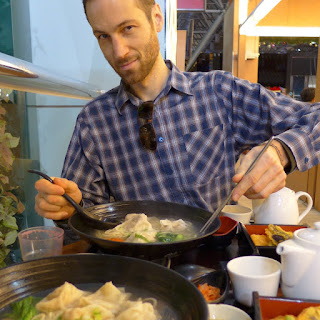Supermarkets in Colombia have been around for years, only in Eighties and Nineties did one see vast expansion around virtually every large population center in the country. On Sundays and holidays, it is impossible to navigate the packed aisles of an Exito or Carrefour, due to Colombians' obsession and reliance on these two monster grocery chains. Groceries isn't just all, both sell consumer electronics, clothes, bedding, furniture; they are more like a Target or Fred Meyer on steroids. Carrefour even has movie theaters.
While the convenience of having EVERYTHING in one place is not to be overlooked, there are some big things the grocery stores here are missing:
-The produce is way overpriced and of questionable quality. This is the most observable weakness of any Colombian grocery store: wilted veggies, rotten fruit seem barbaric to see at a grocery, especially when it is possible to get delicious, fresh (and even organic) produce at a corner market or the large central market. The price of avocados says it all: 3500 each at Carrefour or 500 each at Minorista.
-The meat and dairy is not very fresh. This is shocking for Antioquia, the heartland of cattle and dairy. I suggest a trip to MerColanta or your neighborhood butcher to see what real cow products look like.
-The imported products are nice, but are sometimes spoiled. Being French-owned, Carrefour does have one of the best wine and cheese selections in the city, the problem: there isn't that much of a market for that here, at least where we live in the city so the products have often sat on the shelves so long that they go bad. Twice I've had to take back wine (a $20 bottle) that was corked (at least they accepted the return right?) And most recently a wheel of Gouda cheese that was spoiled.
What I usually end up doing is going to Exito for several products, then Carrefour for the next, and Makro for others; almost the same amount of time it would take to go to the veg market, the meat market etc. So I've resolved to start doing exactly that. I've found a great organic bakery that also does produce, there is a small farmers market closeby; I figure if I'm going to more than 3 places to get what I need for dinner, better to support the little guy AND get better quality. My only limitation is what I can carry with my own two hands and backpack.




